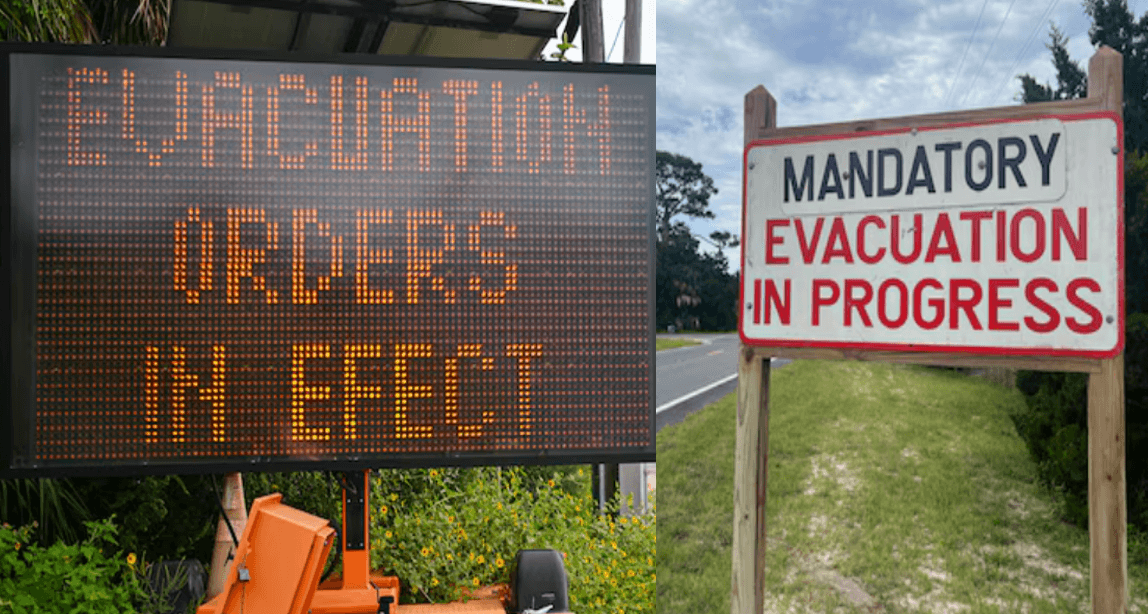As Hurricane Milton barrels toward Florida’s west coast, officials are urging residents to prepare for the Florida Hurricane Milton Evacuation. With the storm’s potential to intensify into a Category 3 hurricane, the risks are significant, especially for those living in flood-prone areas.
Understanding the Florida Hurricane Milton Evacuation Plan
Pinellas and Lee County: Key Evacuation Zones
Residents of Pinellas County are on high alert as Lee County Florida evacuation orders begin to take effect. The authorities in these regions have stated that zones A, B, and C will likely fall under mandatory evacuation orders shortly. For those asking, where is Hurricane Milton going to hit, the latest forecasts indicate that the eye of the storm could target areas south of Tampa Bay.
More Like This: Tropical Storm Milton Path: Tracking the Next Major Storm
It’s vital for individuals living in these evacuation zones to check their status using the official Pinellas County evacuation zone map. This resource helps determine which areas are most vulnerable and whether it’s necessary to evacuate immediately.
Preparing for the Worst: Essential Steps for Evacuation
The Florida Hurricane Milton evacuation calls for meticulous planning and prompt action. Residents should create an emergency kit that includes essential items like non-perishable food, water, medications, and important documents.
It’s also wise to have cash on hand and to fill gas tanks in anticipation of power outages that could disrupt ATMs or fuel stations.
Knowing your evacuation route is equally crucial. Lee County Florida evacuation orders stress the importance of leaving early to bypass traffic congestion and secure a safe departure from risk areas. Having a designated destination, such as a friend’s house, a family member’s residence, or a shelter outside the evacuation zone, will help ensure your safety.
What to Expect as Hurricane Milton Approaches
Highways and Travel Preparations
Governor Ron DeSantis has announced that highway shoulders will be opened to aid the mass evacuation process.
This measure aims to alleviate traffic as speeds may drop below 40 mph in the hardest-hit areas. Despite these efforts, significant congestion is expected as residents from Pinellas and Hillsborough Counties seek safe locations away from the storm’s path.
Officials have noted that where is Hurricane Milton going to hit remains uncertain, which means evacuation orders might expand to other counties depending on the hurricane’s trajectory. Staying informed through local news and weather updates is essential for all residents.
Staying Safe During the Evacuation
For those who plan to stay put during the Florida Hurricane Milton evacuation, there are several safety steps to follow.
Ensure that you have a generator available, along with plenty of batteries and flashlights. Stocking up on non-perishable food and keeping enough water to last several days is crucial in case of supply interruptions.
The National Weather Service has warned that even regions outside the direct path of Hurricane Milton could face severe effects. Strong winds, heavy rainfall, and storm surges are likely to impact areas far beyond the forecasted storm cone, putting a wide swath of the Florida peninsula at risk.
Post-Evacuation: What to Expect When Returning Home
Assessing the Damage After the Storm
After the Florida Hurricane Milton evacuation is lifted, returning home safely will be a top priority for many. However, authorities caution that re-entry might be delayed for several days, particularly in Pinellas’ barrier islands. This delay allows for necessary actions like clearing debris, restoring power, and evaluating the structural safety of buildings affected by the hurricane.
More Like This: North Carolina Nurse Reveals Massive Disaster After Hurricane
Residents are encouraged to be patient as cleanup operations proceed. The Pinellas County evacuation zone map will offer updates on when it’s safe to return to different zones.
Florida residents should take these warnings seriously and focus on staying safe. As the storm advances, keeping a vigilant and proactive approach can make the difference between safety and disaster.








